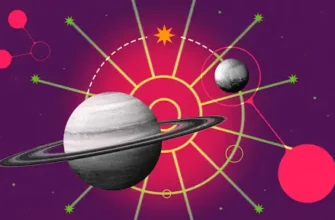The Sun is the only luminous body in the solar system, making it one of the most important planets in astrology. It symbolizes all positive energies, outward traits, and aspects of self-expression, including masculinity, fatherhood, leadership, and authority. In astrology readings, the Sun represents spirit, willpower, consciousness, personal power, and the reputation or image a person projects to the world. It governs self-identity and life goals, serving as a central guide for surviving and thriving in the material world.
In a natal chart or birth chart, the Sun’s placement reveals how an individual expresses their core essence, creativity, and leadership qualities. The Sun influences personal power, self-esteem, pride, and vitality, shaping one’s capacity to lead, inspire, and manifest life objectives. Its position in the zodiac determines the Sun sign, which highlights personality traits, innate talents, and essential life purposes. While Western astrology calculates the Sun sign based on tropical definitions (changing around the 22nd–23rd of each month), Hindu astrology uses the sidereal system, shifting signs around the 14th–15th.
The Sun (☉) rules Leo ♌️ and is exalted in Aries ♈️, reinforcing its connection with strength, courage, and self-expression. In classical Greek mythology, the Sun was represented by Titans Hyperion and Helios, later by Apollo, the god of light. Its role in the solar system is central: Earth and other planets revolve around it, receiving the heat and light essential for life. The arc the Sun traces in the sky reflects the Earth’s orbit, influencing day length, seasonal changes, and the natural rhythms of life.
In astrology, the Sun governs creativity, spontaneity, vitality, and leadership. Historically, references to Sun worship can be found in Mesopotamian religion and the Epic of Gilgamesh. The 1st-century poet Marcus Manilius described the Sun as benign and favorable, emphasizing its life-affirming qualities. Medically, the Sun is associated with the heart, circulatory system, and thymus, and its rays are vital for vitamin D synthesis, crucial for immunity and bone health. In Ayurvedic tradition, it rules over life-force (prāṇā-shakti), governs the pitta temperament, and influences the stomach, bones, and eyes.
The Sun also rules Sunday and has been linked to the liberal arts, including music, by Dante Alighieri. In Chinese astrology, the Sun represents Yang energy—the active, assertive, and masculine principle of life. In the fifth house, over which it is the primary native ruler, the Sun emphasizes creativity, romance, children, and self-expression. Traditionally, it had joy in the ninth house, connecting it to higher learning, philosophy, and spiritual exploration.

Understanding the Sun’s placement in a birth chart provides profound insight into a person’s self-identity, life force, leadership potential, and path toward personal fulfillment. Its meaning in astrology encompasses vitality, authority, creativity, and the conscious expression of one’s core essence. By exploring the Sun in a natal chart, astrologers can illuminate how an individual harnesses inner energy, asserts personal power, and brings their unique light into the world.
The Astrological Significance of Sun
The symbol for the Sun is a circle with a dot in the center. The circle is the shield of the hero Hercules, and the dot in the center is the central relief or
symbol
- Positive symbols: personal charm, energy, ability and power
- Negative symbols: dictatorship, arrogance, self-indulgence
Master personality
The Sun symbolizes a person’s core personality, is the main way of expressing oneself, and is an important indicator of who I really am and
talent
The Sun is everyone’s lifelong goal and shows the manifestation of personal “willpower”.
- The constellation in which the sun falls: represents how an individual develops his or her talents and how to highlight his or her own
“presence”. - The house where the Sun falls: represents how each person
can excel in his or her “living environment” and “secular field” and exert personal influence.
potential
The sign in which the Sun falls represents the personality traits that each person constantly develops based on their unique talents, thereby unlocking their unlimited potential. The house in which the Sun falls
Source of sense of accomplishment
The Sun has the ability to inspire itself. It will set goals and then
Desire for expression and creativity
The Sun’s star and king consciousness has an “exaggerated”
- The constellation in which the sun falls: represents what role you choose to play and how to become a dazzling
protagonist. - The house where the Sun falls: This is the place that a person considers most important and
the field where he hopes to become prominent.
Inner Self
In psychological astrology, the sun is regarded as the self –
- The sign in which the Sun falls dominates the main characteristics of personality, influencing a person’s stature,
physique , facial shape, temperament, and other physical features. Its influence is second only to the rising sign. However, the characteristics of the Sun sign are abstract and may not be obvious in appearance. - The house where the Sun falls determines the outside world’s impression of oneself. As each person
ages, they are shaped by the acquired environment and behavior of the house, and the influence will become more and more profound.
Physical weakness
The Sun sign reveals each person’s different physical weaknesses, as the over-burning of the Sun’s energy leads to wear and tear and
Important men
The Sun is each person’s primary “masculine projection,” representing the type of men







